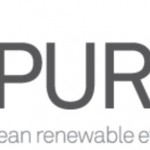New ILUC mitigation study is a potential game changer in debate about biofuels
Brussels, Today – Biofuels produced with low or no risk of Indirect Land Use Change (ILUC) can contribute substantially to achieving the EU’s 2020 climate & energy targets in transport, according to a new study published by the University of Utrechy today. The study “ILUC previous project”, funded by the Dutch Ministry of Infrastructure and Environment, investigated the potential to mitigate or prevent ILUC risks associated with biofuels production. The European renewable ethanol associated (Epure) welcomes the research findings, believing them to be a vital contribution in the debate about ILUC.
The study found that ILUC is a risk that can be mitigated and event prevented if the right practices are put in place, in particular when biofuels are produced from crops grown as a result of increasing agricultural crop yields and on currently under-utilized land. An additional option for mitigating ILUC that the study refers to is the potential ILUC mitigation effects from animal feed co-production from biofuels. In 2013 the UNFAO revealed that the use of animal feed co-products from EU biofuels production reduced global land use by about 3 million hectares, an area the size of Belgium.
The low-ILUC biofuels produced in the 3 European case studies, analysed by the study, would be enough to meet 1.3% of total energy (or 13% of the total renewable energy) demand in EU road transport by 2020.
The study’s findings have potentially massive repercussions for many parts of Europe where there is still huge potential to increase agricultural yields and bring idle agricultural land into production. This is particularly true of Eastern Europe where yields for crops, such as maize or wheat, can be lower than 50% of those of Western Europe. In the Eastern European case studies and scenarios analyses, the study found that increased agricultural yields alone could contribute over 75% of potential low-ILUC biofuels production in these countries.
The publication of the study comes at a crucial time when the European Parliament is due to being its second reading of a proposal to amend Europe’s biofuels policy to address ILUC. The Utrecht study’s findings are consistent with the council’s recent call on the European commission to consider the important contribution of low-ILUC-risk biofuels.
The governing policy framework for ILUC mitigation must not take a broader and more integrated approach to capture the potential of low-ILUC-risk biofuels and ensure a sustainable pathway for biofuels. The study’s authors argue that in the current policy debate much greater emphasis must be given to ILUC mitigation due to the uncertainties and shortcomings in existing studies on ILUC factors. They conclude that certifying low ILUC-risk biofuel production and allowing these biofuels to contribute to the EU’s renewable energy target is the most feasible way to limit ILUC.
“These findings are a game-changer in the ILUC debate. There is massive potential in Europe to produce sustainable biofuels with little or no ILUC impacts but we need to realise these benefits – more jobs, better resource efficiency and reducing GHGs in transport. Low-ILUC risk biofuels to contribute to the EU’s energy and climate targets for transport,” say Mr Robert Wright, ePURE’s Secretary General.





